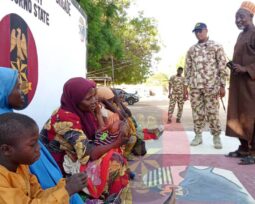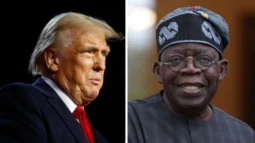Nigeria’s political landscape, often hailed as Africa’s largest democracy, is dominated by the ruling All Progressives Congress (APC) under President Bola Tinubu, who assumed office in May 2023. Despite high expectations for a vibrant multiparty system, opposition parties like the Peoples Democratic Party (PDP), Labour Party (LP), and smaller outfits such as the African Democratic Congress (ADC) have struggled to mount a credible challenge. As of October 2025, with economic hardships intensifying—inflation hovering at 24% year-on-year in Q1 and poverty affecting 46% of the population—these parties should be thriving on public discontent.
Yet, they remain fragmented and ineffective. This article examines the structural, internal, and external factors ensuring their prolonged failure, drawing on historical patterns and recent developments.
The Current State of the Nigerian Opposition
Nigeria’s opposition is a patchwork of parties born from the 2013 merger that birthed the APC, which ousted the PDP in 2015—the first such transfer of power in the country’s history. Today, the PDP and LP, which together garnered over 13 million votes in the 2023 presidential election, are mired in crises.
The APC has swept three of four off-cycle gubernatorial elections since 2023, including a stunning upset in PDP-stronghold Edo State in September 2024. Voter turnout hit a dismal 26.72% in 2023, reflecting disillusionment not just with the ruling party but with the opposition’s inability to inspire confidence.
Emerging coalitions, like the July 2025 ADC alliance involving former rivals Atiku Abubakar (PDP) and Peter Obi (LP), aim to unify for 2027. However, internal rifts—such as Obi’s insistence on contesting solo—undermine these efforts, echoing past divisions that handed Tinubu victory. As one analyst notes, Nigeria’s opposition lacks the historical strength to enforce accountability, a legacy of fragmented politics since independence.
Root Causes of Persistent Failure
Nigeria’s opposition woes are not mere setbacks but symptoms of deep-rooted systemic flaws.
Here’s why they endure:
1. Ideological Emptiness and Opportunism
Nigerian parties are “special purpose vehicles” for power grabs, not vehicles for policy. Lacking distinct ideologies, they recycle the same elite politicians across platforms, driven by self-interest rather than vision. Voters, prioritizing ethnic or personal loyalties over ideas, see little difference between APC and the opposition offerings. This fluidity fuels “electoral black markets,” where defectors flock to the ruling party for patronage, as seen in waves of PDP and LP lawmakers jumping ship post-2023. In 2025, ongoing defections signal a de facto one-party state, where opposition is a temporary inconvenience.
2. Chronic Internal Divisions and Lack of Internal Democracy
Opposition parties are plagued by infighting, with PDP and LP entangled in endless court cases and leadership tussles since 2023. The absence of internal primaries or accountability—evident in LP’s financial scandals and PDP’s factionalism—erodes cohesion. As political analyst Olalekan Ige observes, Nigerian politics is “not by ideology but by self-interest,” making unity elusive even during elections. This mirrors the 2015 coalition that toppled PDP but fractured under similar pressures, leaving successors vulnerable.







